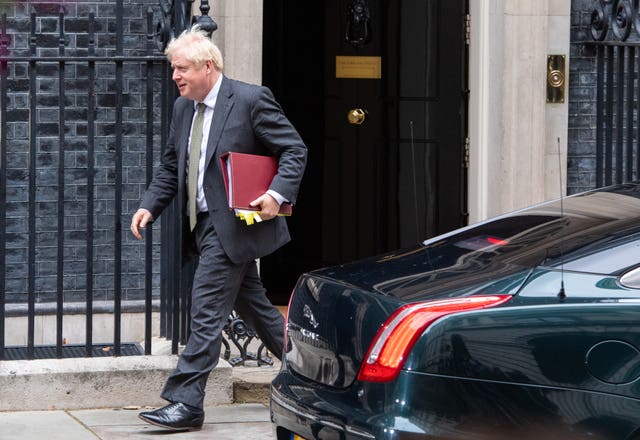
European Union leader Charles Michel has criticised the UK at the UN General Assembly for its threats to renege on parts of the Withdrawal Agreement it signed with the bloc.
He warned on Friday that the 27-nation organisation will not back down in the final weeks of talks on a free trade deal.
Mr Michel said “respect for treaties, a basic principle of international law, comes to be considered optional even by those who, until recently, were its historical guarantors”.
“All this in the name of partisan interests,” he said in reference to the UK Government.

His ire was raised when UK Prime Minister Boris Johnson said he would contemplate breaking an agreement he himself signed with the EU.
Mr Johnson proposed a Bill earlier this month that would disregard part of the Brexit withdrawal treaty dealing with trade between Ireland and the UK.
The Withdrawal Agreement officially allowed the UK to leave the bloc on January 31 this year.
The EU insists the agreement must be respected for fear it could otherwise reignite tensions on the island of Ireland.
Northern Ireland has special status in the Withdrawal Agreement because it is the only part of the UK that shares a land border with an EU country.
The UK and the EU jointly promised in the Brexit divorce agreement to ensure there are no customs posts or other obstacles on the Northern Ireland-Ireland border.
The open border is key to the stability that underpins the 1998 peace settlement that ended decades of violence between Irish nationalists and British unionists.
Although Mr Johnson’s government has refused a demand by the EU to drop the Bill that breaks international law, it has struck a more conciliatory tone since the legislation sparked an outcry in the UK as well as in the bloc.
It has rowed back on Mr Johnson’s claim the EU could try to “blockade” food exports to Northern Ireland from the rest of the UK if there is a no-deal Brexit.
The Prime Minister’s spokesman Jamie Davies said the EU has confirmed “normal processes will be followed” and there will be no blockade.
At the same time, Mr Michel also strengthened the position of the EU’s chief negotiator, Michel Barnier, in his talks with the UK on a free trade deal by insisting the EU will not bend to unreasonable compromises.
The talks have stalled over several issues and the EU insists the UK’s negotiating strategy is to to hold on to the privileges it had as a member of the bloc without having to carry the burdens of that membership.
The UK is seeking far-reaching access to the EU market but does not want to live by the rules that underpin trade with the bloc, he said.
“Access to our large market – the second-largest economic zone in the world and the first in terms of international trade – will no longer be sold off,” Mr Michel said.
“From now on, we will better enforce the level playing field, in a market open to those who respect its standards – whether they leave our union or want to move closer to it.”
More UK-EU trade talks are due to take place in Brussels next week.
Both sides have said a deal must be struck by October if it is to be ratified by the end-of-year deadline.
The UK Government said on Friday that “progress has been made” in negotiations but gaps remain in key areas, especially fishing rights and state aid rules.
“There remains a lot of work to do and either outcome is still possible,” it said in a statement.


Comments: Our rules
We want our comments to be a lively and valuable part of our community - a place where readers can debate and engage with the most important local issues. The ability to comment on our stories is a privilege, not a right, however, and that privilege may be withdrawn if it is abused or misused.
Please report any comments that break our rules.
Read the rules here